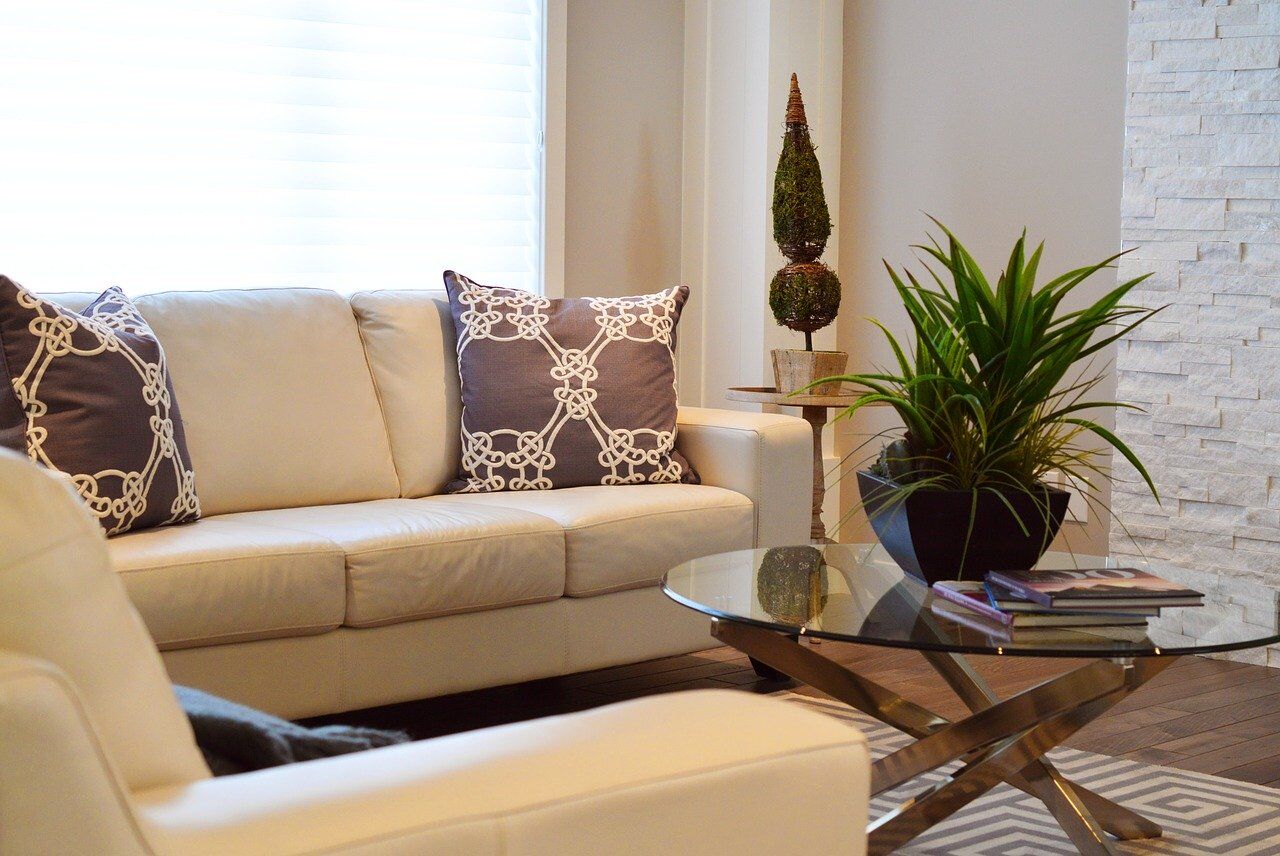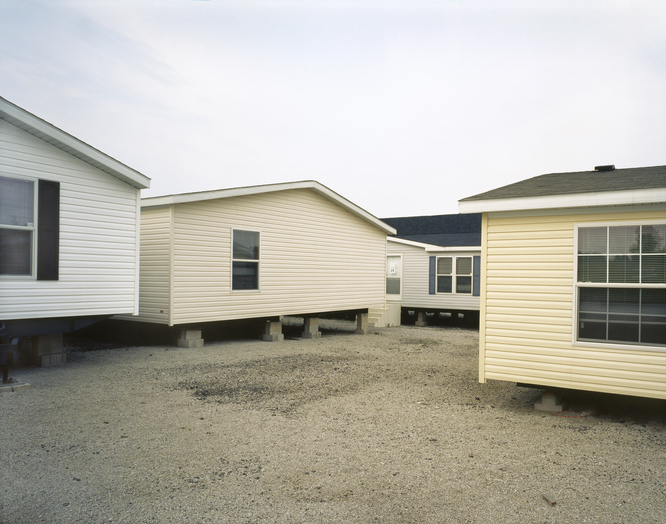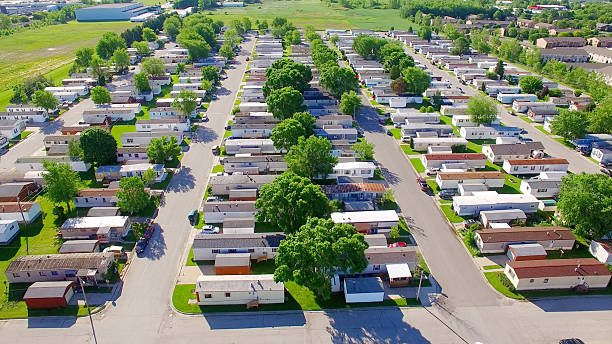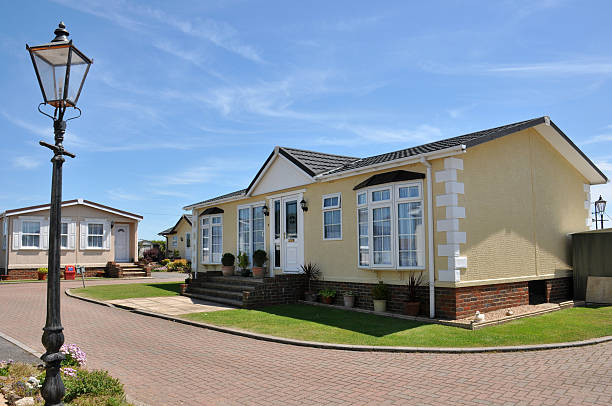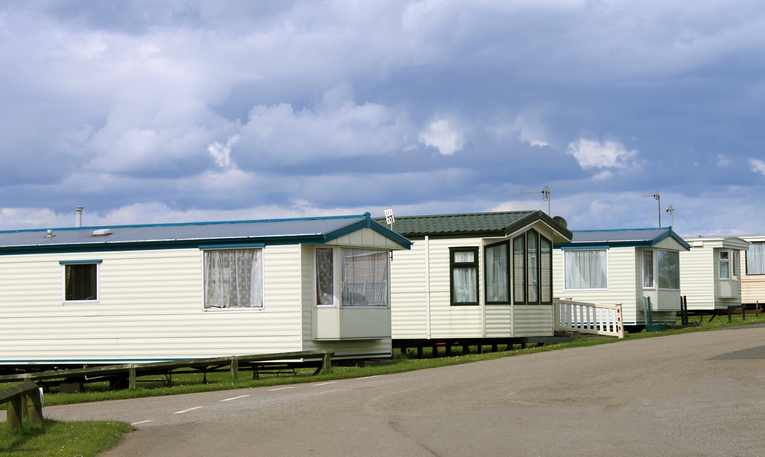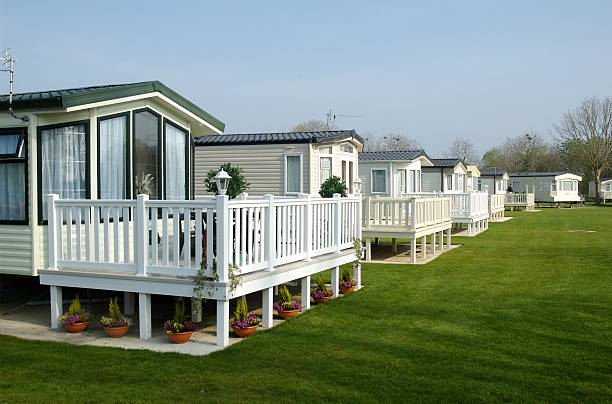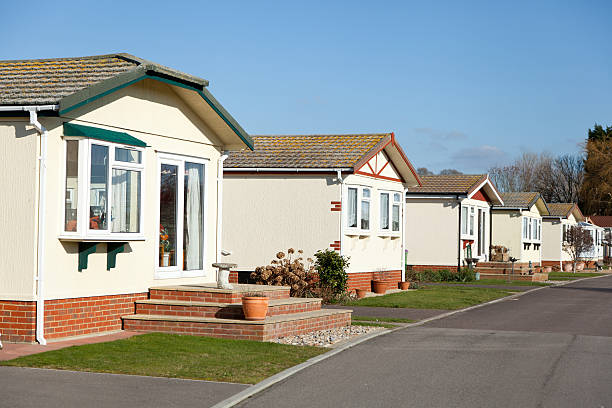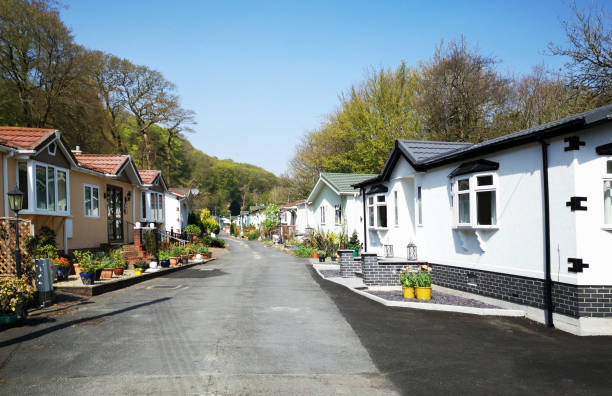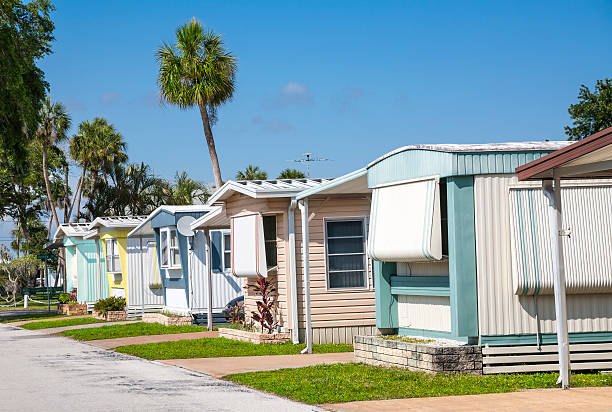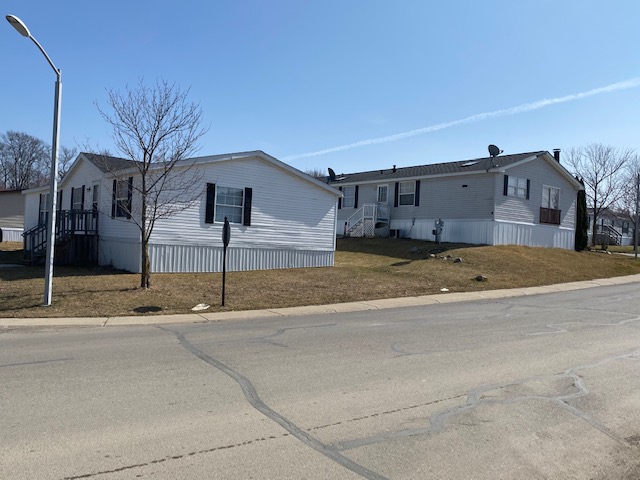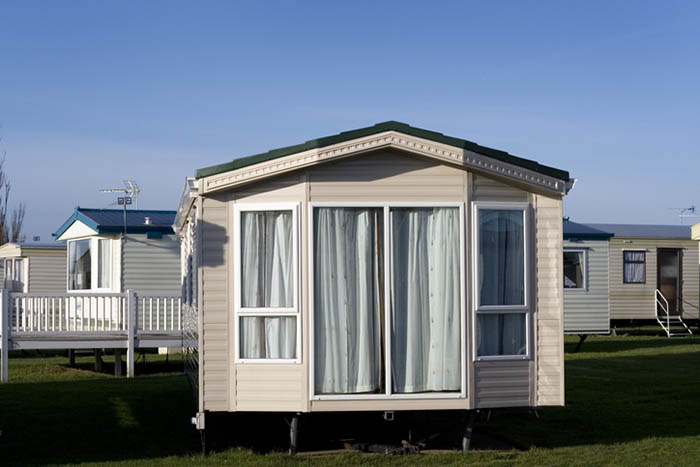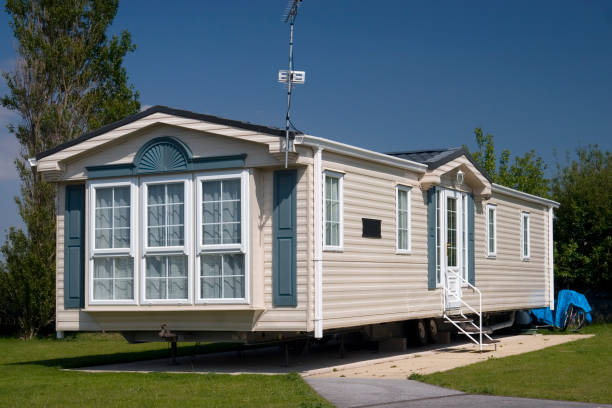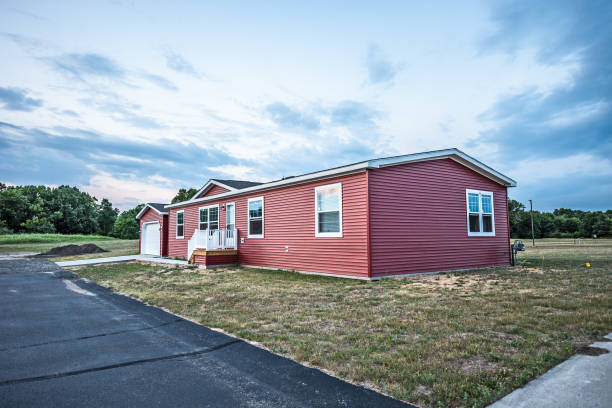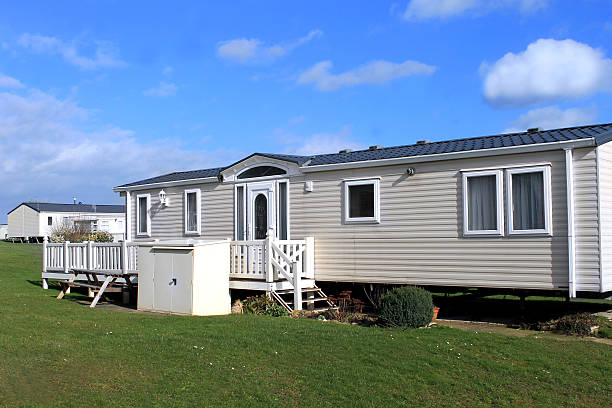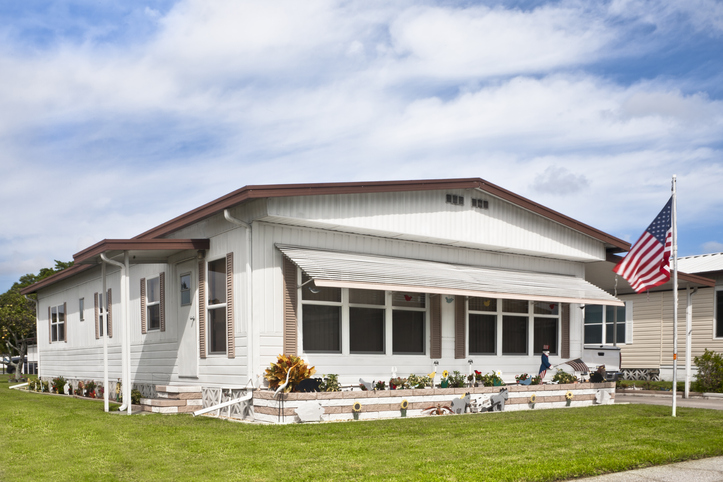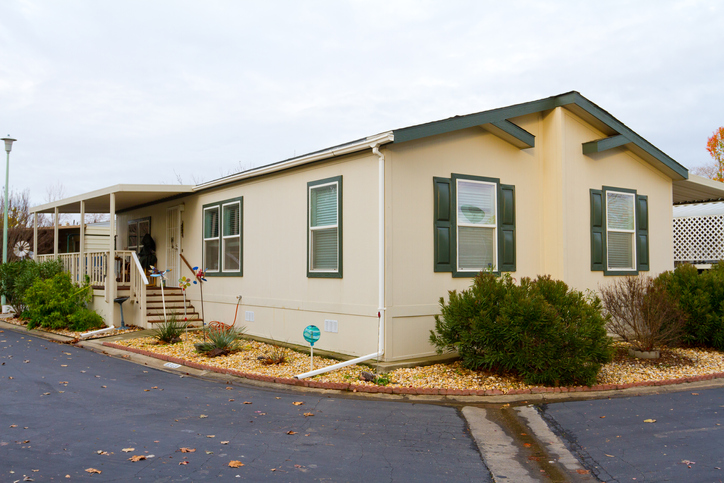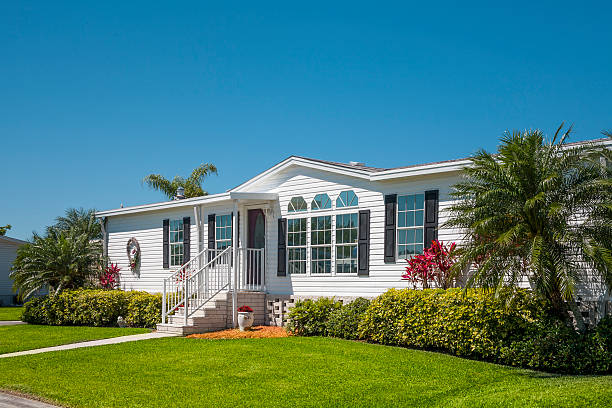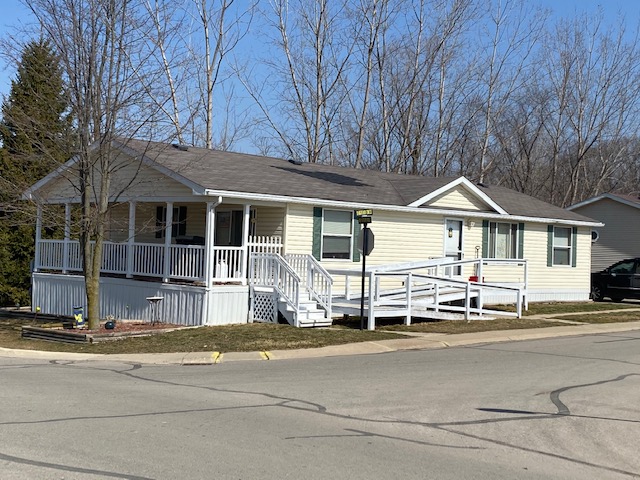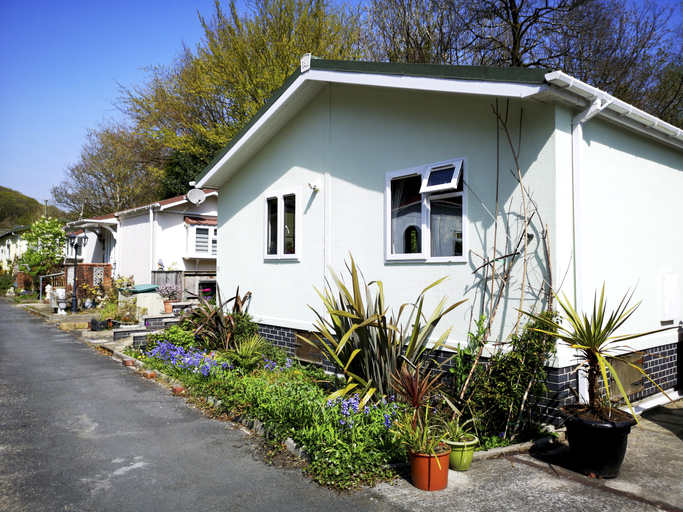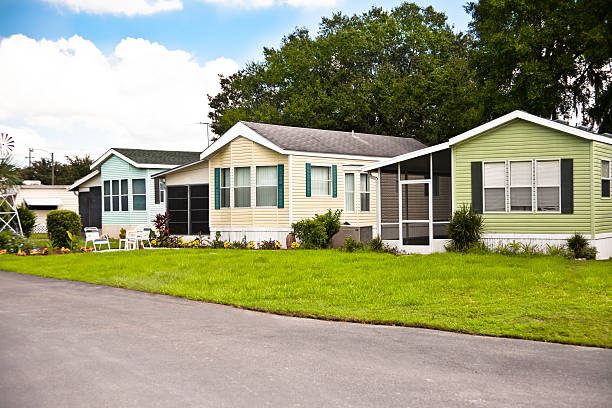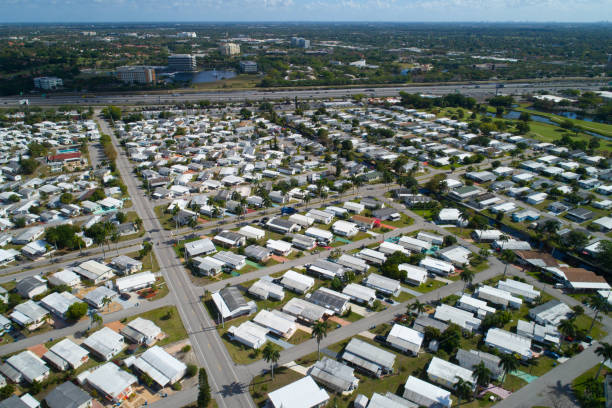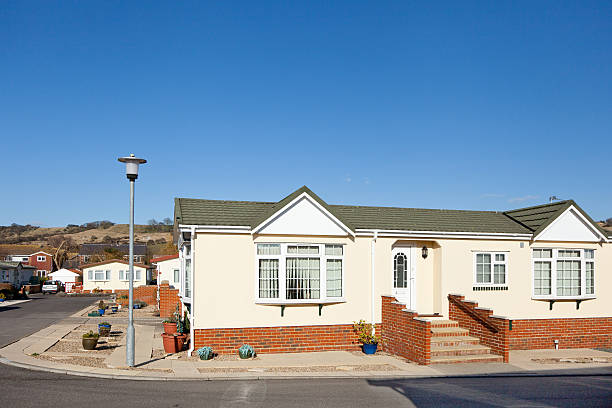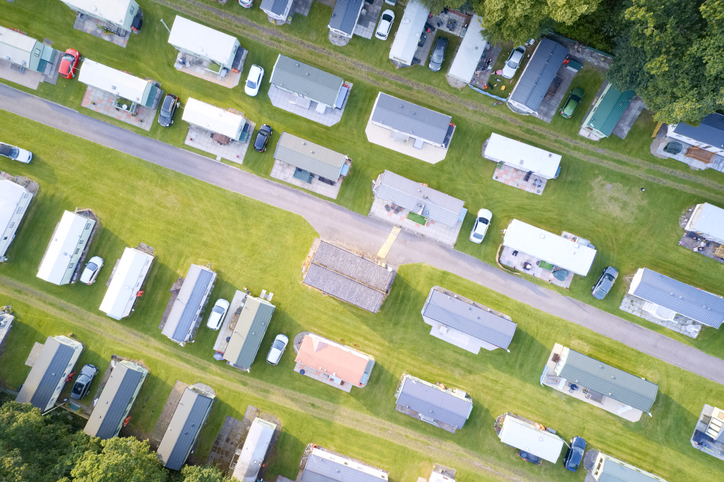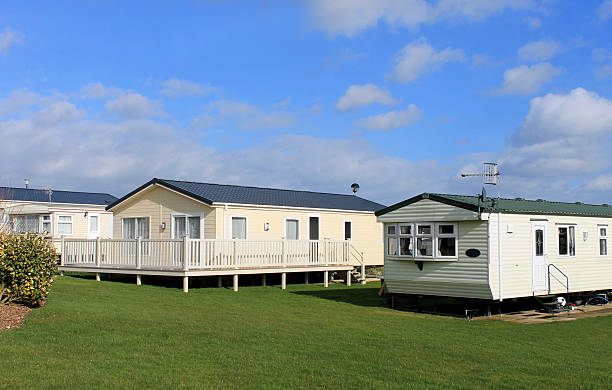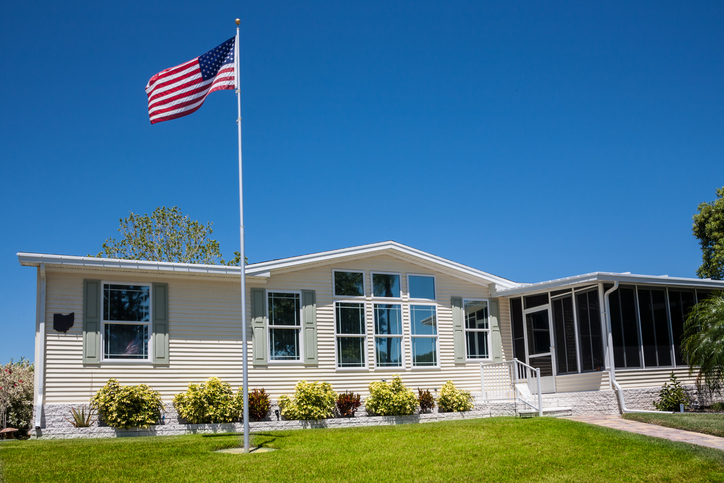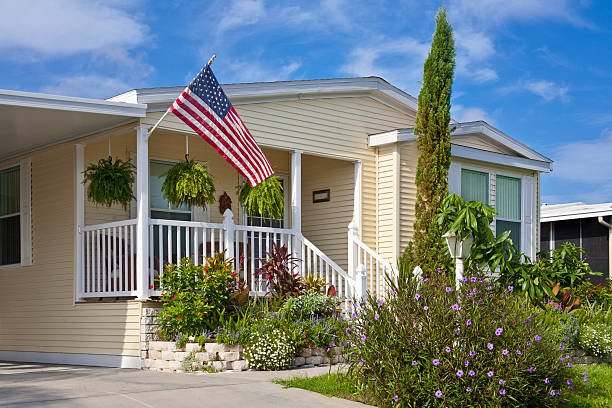6 years ago
·
Justin Becker ·
Comments Off on Mobile Home Tips: Finding the Right One for You
Mobile homes have been on the rise in the real estate market every year over the last decade. This is all while capturing the imaginations of millennials struggling with student loans, along with mobile home owners looking to downsize.
Some of the reasons for this are because mobile homes are reputable for being low maintenance, affordable, and customizable.
If you want to escape the extra costs of site-built homes, this is the perfect option for you.
Even though mobile home living has become a common trend, you should follow certain tips before investing in one. For instance, maintenance considerations, getting a mortgage, and the choice of land options all differ from the traditional site-built homes.
Here, we explore some mobile and manufactured home tips that you should understand before investing in the best maintenance-friendly mobile home for your family.
Mobile Home Tips
Let’s go through the tips for mobile home living.
Land for Mobile Home Living
Manufactured home developers understand that mobile homeowners want to settle in a beautiful and comfortable space. A comfortable space means that the mobile homes must provide luxurious upgrades and fixtures, with features such as well-painted walls, hardwood floors, skirting ventilation, proper roof, and granite counters.
Before you buy a manufactured home, you should already have the land and foundation to put your mobile and manufactured home property. However, if you rent a manufactured home, you won’t have to pay for the land.
You can either have your mobile home on your own private land or in a manufactured home community, where you pay a monthly lot rent.
Settling in a manufactured home park offers your family a vibrant community that has exciting amenities. This way your mobile home living experience will be outstanding.
Renting land will enable you to incur the low initial down payment required to secure financing. However, it will be difficult to access a traditional mortgage.
If you decide to buy land on which a mobile home will be placed, you will incur more costs upfront. You will also have to carry out more research into zoning laws and local deed restrictions.
With that said, owning land enables you to access traditional mortgages at a lower interest rate. You will be protected from the depreciation of mobile homes if you own the land where your manufactured home property is placed.
When the value of that land appreciates, you can gain meaningful equity.
Considerations While Buying a New Manufactured Home
Buying a new home can be a walk in the park, if you follow the right tips.
The advantage of buying or renting a new manufactured home is that you won’t have regular maintenance and repairs, and you’ll have many customization options. This offers you a chance to have an exciting mobile home living experience.
Some of the options include:
- Select the exact layout and size that you’re looking for: When you buy a new home, you can select the size of your manufactured home property. The mobile home’s size ranges between 900 square foot to 2,500 square foot. You’ll also be presented with a unique opportunity to select the perfect floor plan for your family. In most cases, the price is determined per square foot.
- Select all the features you require: When you buy a manufactured home you’ll access some of the best features, including windows, walk-in closets, fireplaces, custom cabinets, countertops, a well-painted wall, and a quality roof.
- Customize the exterior: Apart from customizing the interior of your house, you can also customize the exterior by choosing vinyl siding materials and colors, decks, skirting ventilation, awnings, steps, and more.
Buying Used Mobile Homes
The main advantage of going for a used mobile home is that it has a reduced price. For instance, the price of used double-wide mobile homes, per square foot, is lower than that of new double-wide units.
Even with the lower price, you should ensure that your home is in good condition, if you want to have a good mobile home living experience.
Always check the following tips:
- Ensure the insulation beneath the belly wrap contains no moisture
- Check your doors and windows for cracks, insulation, and gaps
- Test the flooring strength and ensure that there is no warping
- Ensure that you have 2×6“ lumber and 16“ spaced studs in walls
- Check that there is no settling
- Ensure that your anchoring system is intact and sturdy
Research the Available Mobile Home Living Options
Nowadays it’s easy to get all of the information you would like to know about a mobile home. Since information is readily available, always dig to learn more about the mobile home, along with the company or agency that wants to sell you the home.
Every mobile home is developed under the same HUD Code. The best mobile home has exciting countertops, well-designed floor plans, well-ventilated windows, and spacious parking.
You might also interact with exterior additions such as skirting, a quality roof, porches, and decks. These things won’t be included in your base cost.
Shop Around for a Mobile Home
The internet offers many buyers more power to negotiate for the best deals. Use this power to your advantage when acquiring a mobile home.
Before you buy a mobile home, shop around online or visit several locations. You can even compare the price of mobile homes. Remember, this is your mobile home, not anyone else’s.
Negotiate the Total Price
A mobile home company isn’t a bank. Only licensed loan officers offer a true monthly payment. If you want the best deal, you should negotiate the actual price for your mobile home, not the monthly payment.
This means the price of everything in the mobile home community, not just the mobile home price. If you own land, there are additional expenses such as septic, electric hookups, and water.
You can even have the bottom line of every cost, including maintenance, upgrades, delivery, and land improvements.
The aim here is to get the best deal for your mobile home living experience.
Always be Ready and Willing to Walk Away
Walking away from a bad mobile home deal is among the greatest tools you’ll ever yield. There is a high chance that even if you fall in love with a mobile home, there are hundreds of dealers selling that kind of home, or at least very close to it.
Dealers fear potential customers walking away from a deal. If you leave, their worst fear is that you’ll never come back.
If you are offered a deal that you don’t like, just walk away. They might offer you a better mobile home deal, or you’ll get a better deal somewhere else.
Approach a Bank
In most cases, banks assist people in purchasing a mobile home. You won’t be charged anything for approaching a bank and applying for a loan.
Approaching a bank will enable you to access loan facilities that you can use to finance your home.
Even though a mobile home is affordable compared to a site-built home, it’s still difficult to finance this home from your savings. You might also need more money in case of maintenance issues.
Ask Questions
There is nothing like asking a “stupid” question when you want to buy a mobile home. If people had all the right answers, there would be no dealers in the real estate industry.
Never feel ashamed to ask as many questions as possible or get clarification from someone helping you purchase your mobile home of choice.
If you get answers that you don’t understand, don’t be afraid to ask for further clarification.
A reputable and reliable mobile home dealer will be more than willing to answer all of your questions in a way that you understand.
Make a Call
You can find the service level you’ll get from your potential mobile home by finding out how helpful your dealer is over a call.
Since the beginning of the COVID pandemic, making a phone call is preferred by many to visiting the office in person.
Some of the best dealers won’t hesitate to share their mobile home prices over the phone.
With that said, many dealers don’t like providing pricing information over the phone because they know you’ll carry out a comparison with other dealers.
However, you should also do some personal research online concerning a dealer and the services they offer. Selecting the best dealer typically translates to a good mobile home living experience.
Conclusion
Buying quality manufactured homes with exciting curb appeal, a quality roof, durable skirting, and well-designed walls isn’t easy if you don’t have the right tips.
However, the above tips will offer you a chance to buy or rent manufactured homes of choice for your family.
The best manufactured homes are those that have the best features, such as energy-efficiency, skirting ventilation, and well-designed walls, all at an affordable price.
We hope that you find the home of your dreams and have a wonderful mobile home living experience.
Read more
6 years ago
·
Justin Becker ·
Comments Off on Downsizing to a Mobile Home: Pros and Cons
There is no argument that a mobile home is one of the most affordable housing options that you’ll ever find.
At some point in their lives, most home owners will consider downsizing to a mobile home to reduce their living costs. Downsizing also lowers the day-to-day expenses out of your pocket, thus availing a pool of cash for other functions and activities.
Downsizing is, therefore, the smartest approach to simplifying your life, especially if you’re approaching retirement. Here, we explore what you must know about downsizing, and the pros and cons of a mobile home.
Downsizing to a Mobile Home
There is no question that downsizing presents several advantages, along with some disadvantages. However, before we focus on these pros and cons, let’s explore some important things you should know about downsizing to mobile homes.
Important Things to Know About Downsizing to a Manufactured Home
Here are some of the things you should understand about downgrading to a mobile home:
Downsizing Can be Done in Several Ways
Here are some examples:
-
- Going Smaller: Those who own single family homes resort to finding a smaller home in the same neighborhood or area. The circumstances of home ownership might change, and the larger homes you once needed no longer become a priority. This happens, especially for those approaching retirement age.
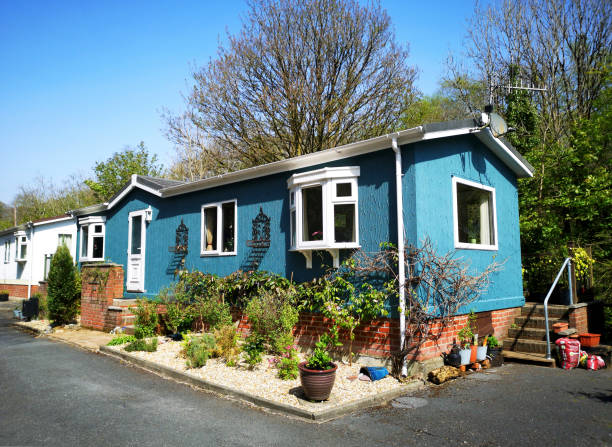
-
- In this case, a smaller house becomes easier to maintain and manage. It also has low utility demand, which translates into cheaper bills. Again, this presents a cost-friendly approach, especially for those nearing retirement.
- Change of Area: The value of a manufactured unit varies from one community to another. A homeowner can manage a reduction in their cost of living by moving from one manufactured home community to another. The advantage here is that you can even get a larger, or similar housing unit, to the previous one, at a cheaper cost. Whether you are starting a new job or nearing retirement, this would be an option to consider.
- Mobile Home or Manufactured Home: You can achieve your downsizing objective by moving from a site-built home to a mobile or manufactured home. Mobile homes are by far more affordable to buy or rent, and cheaper to maintain.
- Moving from a site-built housing unit to a manufactured housing unit has become a popular trend for downsizers, especially those who have reached retirement age.
The Manufactured Home Option
There has been a stigma associated with living in a manufactured home or mobile home, especially for those who had lived in site-built homes before. In a lot of cases, a mobile home has been branded as being unattractive, poorly constructed, and cheap.
However, times have changed, and the mobile home market and real estate industry have changed as well, and for the better. Nowadays, manufactured homes are well built and attractive.
The stigma that was always associated with living in a manufactured home community has disappeared. A mobile home has, therefore, become an option, especially for those who want to downsize in the real estate industry. This includes people who have smaller families, along with those nearing the retirement age.
Manufactured or Mobile
The use of the term mobile home was discarded in 1976 when HUD (U.S. Department of Housing and Urban Development) created the HUD Code for all homes built in factories. Since then, these homes have been known as manufactured homes.
The HUD Code addresses the following things in real estate:
● Transportability
● The homes overall quality
● Strength
● Construction
● Fire resistance
● Durability
● Codes for plumbing, electrical, and HVAC
● Energy-efficiency
However, today the terms manufactured home and mobile home are used interchangeably.
Factory-built units come in three types:
- Manufactured Home: This is a single family unit built under a controlled environment in a factory, as per the HUD Code
- Modular Home: A single-family unit built in at least two sections under a controlled factory environment
- Prefab Home: This is a kit housing unit where all components are designed and developed off-site, and then taken for assembly
Manufactured Home Quality Standards
One thing that has discouraged many residents from downsizing into manufactured homes is the perception that the homes have low-quality construction standards, compared to site-built units.
However, this perception has been proven wrong since the HUD Code brought quality and safety standards to these units. These standards are almost the same to those used in the development of a site-built home.
In fact, in some cases, manufactured homes are constructed of higher quality, compared to stick-built units. This is because these homes are developed in a highly controlled environment.
During construction, these homes aren’t exposed to wind, snow, or rain. In even the most extreme conditions, the building materials won’t be compromised or damaged by weather elements.
Manufactured homes are also built by skilled workers who have gathered experience over a long period. These workers ensure consistency in the quality of all manufactured homes.
The landscaping involved with manufactured homes is just as appealing and attractive as that in site-built units.
Mobile Home Communities
When many begin to investigate downsizing to a manufactured housing unit, they are pleasantly surprised that these homes are found in well-planned manufactured home communities. There are even manufactured home communities that are designed to accommodate 55 years of age and older homeowners.
Most new manufactured home communities come with exciting recreational facilities, a swimming pool, structural social events, and clubhouses.
Some mobile home parks are found in a community that has a lower value, thus translating into lower costs.
The communities are also peaceful and quiet, since the majority of the people there have either attained, or are nearing, the retirement age.
Land Ownership with Manufactured Homes
The land is the biggest risk associated with the ownership of mobile homes. When it comes to the land, there are several things to be addressed, including:
● The owner of the land-lease community that the home is located
● The ongoing costs related to owning that land
● Is there a chance that a homeowner might lose the ability or right to own the land?
● What would likely happen if you lose the right to that land?
● What if the rental rate per month becomes unaffordable?
If the land where the manufactured home is located belongs to you, there is no reason to worry. Otherwise, you might be forced to lease the land.
Many manufactured communities and parks were established in areas that are on the outskirts of their respective towns, thereby offering little or no development. However, the communities of today are surrounded by development.
Before downsizing, it would be best to consider the land on which your home is located.
Manufactured Home Movers
Another major benefit of manufactured homes is that they are portable. This means that you can move them from one place to another.
For instance, if you secure a new job in a different city, you can move your home to that new community.
If you own a mobile home and would like to move it from one community to another, you should find a reliable and professional transporter.
The cost of moving a home will depend on several factors, which include:
● The type of structure, i.e. whether it’s a single-wide or double-wide structure
● The dimensions of your structure
● Route planning and survey
● Oversize and legal transport
● Delivery and pick-up, per the community
● Escorts and permits, if any
For instance, an interstate move that requires no permits or escorts will cost between $500 to $3,500. An out of state move can cost between $2,000 to $15,000.
Pros of Downsizing into a Manufactured Home
Many residents aren’t just downsizing their homes for no good reasons. It turns out that downsizing presents some benefits that you would never imagine.
Let’s look at some of these benefits:
Downsizing to a Manufactured Home Saves Money
If you have ever invested in an expensive home, you understand the financial disaster that comes with such a move. The smaller the house that you rent or buy, the lower the cost.
Apart from opening more room in your budget per month, you’ll also manage to save a modest amount, which can allow you to pay for your mobile home upfront, if you so choose.
You’ll automatically see the fruits of downsizing, especially if you were to move from a site-built home to a mobile home. As we’ve said before, manufactured homes are known to be more affordable compared to site-built units.
Freedom from Debt
A big house will also translate into a big mortgage. A smaller housing unit won’t attract any mortgages since you can easily pay for everything right from your pocket.
You’ll, therefore, have less time wondering how you’ll finance your home. Even if you lost your job or experienced some financial hardship, you could still afford to pay your rent per month.
You can also channel the money you save to make improvements in your home.
You’ll Have Less Room to Hoard
Downsizing to a manufactured home means that you have moved into a smaller home that has limited space. It’ll force you to declutter and keep only the stuff that you need.
Freedom to Move With Your House Anywhere You Go
This may be the biggest advantage of downgrading to a mobile home. For instance, how many times have you moved and relocated to a different city or state?
Now imagine buying a stick-built home and building one for yourself every time you move. This wouldn’t make any economic sense. It’ll be costly, and in most cases, you’ll have to sell a home first before building another one.
What if we told you that moving with a mobile home could be as easy as igniting your truck and driving away? Most of the mobile homes are developed on trailer beds, leading to easy moving.
With a manufactured unit, you can achieve the following:
● Move with your house when you find a new job in a different community, without having to buy a new one or sell the old one
● You’ll never need to worry about renting or hiring a mover
● You can stay with family and other residents without infringing on each other’s privacy
● Avoid anticipating natural disasters
● You’ll own a cheaper and reliable vacation room
● You’ll never pay for a hotel room on a road trip
More Time
Homes are time–consuming when it comes to the care and maintenance that they require. However, mobile homes could just take one minute to vacuum your floor and do some general cleaning.
Remember that the free time that you have is inversely proportional to the size of your home. This means that you’ll have more free time with a decrease per square foot. It would, therefore, be more liberating if you settle in a mobile home.
Better Quality Home
When you downgrade to a mobile home, you’ll manage to upgrade the home to the quality you want, since you’ll manage to cut the cost of the house and materials significantly.
For instance, having a marble countertop in these homes won’t cost more per square foot compared to traditional homes. You can also install hardwood floors in your house at an affordable price.
You’ll Live in a Friendly Manufactured Home Community with Exciting Features
If you have ever lived in a manufactured home community, then you understand the mobile home living environment. Most of the mobile home parks are friendly and clean.
Several activities are planned to bring residents within the communities together. In the process, you’ll make quality friends with other residents. You’ll also spend quality time with your family in mobile home parks.
In most manufactured homes, you’ll interact with some of the best features ever. For instance, some communities have a swimming pool, spacious parking, and well-designed floor plans.
Cons of Downsizing to a Manufactured Home
Even though downsizing to a mobile home brings several benefits, there are also some drawbacks that you should have a good idea of. Let’s look at some of these disadvantages:
Finite Architectural Designs
Whether you’re looking for a single-wide or double-wide unit, Realtor Darren Robertson notes that “you won’t find a variety in architectural design when it comes to manufactured homes, as you would with site-built homes”.
These homes are mainly developed in a boxy design. They are designed in rectangular, redundant shapes that are determined by transport limitations. The design is not pleasant to many residents.
The Homes Have Limited Size
Manufactured homes are designed with a limited size, again being determined by transport limitations. However, this won’t be a challenge if you’re entering a mobile home as part of a downsizing strategy.
Manufactured Homes Depreciate Faster
One of the main disadvantages of a new manufactured home is that it depreciates greatly. Unlike site-built homes, manufactured units don’t come with the land where they are placed. You’ll have to lease the land or buy your own.
Mobile homes are personal property, as compared to stick-built homes, which are real property. Personal properties can be moved while real properties are fixed on land. Generally, personal properties reduce in value with time, like a car, while real properties appreciate.
Financing
Since a mobile home falls under the real property category, it’s expensive to finance using mortgage payments. Whether you’re buying a single-wide or double-wide manufactured home, you should expect higher interest rates, with shorter terms, on your mortgage payments.
Damage To Your Home
Although downsizing to a mobile unit will save you a lot of money, the home might damage easier. The home has a temporary foundation, making it a higher potential to be damaged by storms and strong winds.
Mobile Home Park Policy
Whether you buy or rent a single-wide or double-wide unit, you’ll find yourself in a mobile home park where you lease land. This means you’ll have a landlord who will set rules and procedures for living in that mobile home park, even though you pay rent per month.
It also becomes difficult to sell a home that is in a mobile home park. If you end up selling a home in a mobile home park, it’ll be at a much reduced price.
Conclusion
Downgrading to a mobile home could be a tough decision, especially if you have been living in a site-built home. However, it could be the best idea, if you’re downsizing for the right reasons.
If you downsize into a perfect home, you’ll end up saving a lot of money in the process. There is also a unique opportunity to move with your home anywhere you go. You can also get a modern style house, with access to quality features such as parking, swimming pool, and high-end countertops.
Not to mention, you’ll evade the burden of having to finance your home using expensive mortgage payments.
We hope that you manage a successful downsizing into a home of your choice, in the absolute best mobile home park for you and your family.
Read more
6 years ago
·
Justin Becker ·
Comments Off on The Benefits of Living in Mobile Home Parks
Mobile home communities are growing in popularity in the United States, but its not only for their pricing. The close community bond it fosters plays a significant role too.
Nationwide, an estimated 20 million Americans live in trailer parks.
The Manufactured Housing Institute reported nearly 10% of the nation‘s housing stock is manufactured homes, which totaled about 8.5 million in 2018.
Mobile homes make up 6.4% of the U.S. housing sector, and there are 8.5 million of them, which is down slightly from 2011.
Despite their growing popularity, mobile homes still suffer a huge image problem in the United States. Often, misconceptions surrounding mobile homes find their way nationwide.
However, many don’t understand that today’s mobile home is built to a code administered by the United States Department of Housing and Urban Development (HUD Code).
This is a standard building code that came into effect in 1976.
Benefits of Living in Mobile Home Parks
Today’s manufactured home offers great advantages and benefits that make it a popular housing choice for many people.
Compared to a traditional home, manufactured homes offer more square footage, it is pretty quick to build, and it now has safety and security features that are tried and tested by many.
As the population grows and the scarcity of resources to build a traditional home continues, mobile homes are expected to be the first option for many.
More and more people are choosing to live in manufactured homes. Here are reasons why trailer parks are a great option for housing.
Bigger Living Space and Privacy
In an apartment, the only difference between you and the neighbor next door could be the wall. As such, you can barely get the privacy you need.
Manufactured home communities, on the other hand, offer their residents their compound for privacy. The difference is that with a mobile home, you pay a lot rent instead of unit rent, in the case of an apartment.
At worst, a noisy neighbor in an apartment can make your stay a nightmare.
In contrast, living in a manufactured home community is different; a resident is held to account by the rules of the park.
The trailer park regulations keep everyone on their toes and avoids conflicts between members. In a trailer park, your lot is yours.
Living in a manufactured home means you get to have the parking you need, and the appropriate space for your family.
Less Maintenance Cost Compared to Site-Built Homes
Living in a mobile home park is inexpensive. You will spend less on maintenance since the park owners will take care of it.
However, a traditional stick-built real estate home is entirely on you when it comes to maintenance.
The bigger the house, the more you are likely to spend on maintenance. Often, manufactured home communities have a team of dedicated staff members that can offer you help with repairs on your home for a fee, saving you time and money.
The staff is professionally trained to handle repairs and make life easier during your stay. Not only do manufactured home communities offer great homes, but they also prioritize beautification too.
If you moved into a manufactured home from an apartment dwelling, you might not be used to maintaining a lawn and garden.
If you don’t have time for the labor, use a gardening service and ask for low-maintenance plants.
Quality Living at an Affordable Price
Manufactured homes provide quality living at an affordable price. Often, mobile homes are 10 to 30 percent cheaper than traditional homes.
According to the U.S. Census Bureau, mobile homes can cost an average of $62,600, compared to $272,200 for a single-family stick-built home.
A mobile home gives you a better price per square footage for your money.
The Oregon Manufactured Housing Association says that a manufactured home’s cost per square foot is nearly half that of a stick-built home, at about $41.24.
Manufactured homes are cheaper to own than traditional real estate homes, and they are cheaper to build and maintain.
If you are considering mobile home living, here is a breakdown of how much you should expect to pay, on average:
- Single-Wide mobile homes price: $43,500 – $59,000
- Double-Wide mobile homes price: $110,400 – $119,400
- Manufactured homes with more than two sections: $92,900 – $103,100
Less Worry About Property Taxes
In the U.S., property taxes are paid by property owners to local governments, and are typically based on the value of the owned property.
Property taxes are calculated based on your property’s assessed value and the tax rate of the taxing authority, which your local tax assessor’s office typically evaluates.
A mobile home is considered personal property. As such, taxes on your home are significantly lower than a single-family unit on a city lot.
If you own both the land your home is on and the home itself, you will pay all property taxes associated with your property.
However, for manufactured housing, who is responsible for the property tax can vary based on state and local laws if you do not own the home’s land.
Depending on the state you live in, you may not even pay property taxes on your manufactured home at all.
For example, the state of Michigan requires no annual tax for factory-built homes, unlike a site-built home. Often, instead of annual taxes, the state will levy a tax at the time of the manufactured or mobile home purchase.
Community Parks Use Rules and Regulations to Keep Residents in Check
Upon joining a trailer park, expect to sign a rules and regulations agreement.
As such, you should do adequate research and determine whether the trailer park rules are suitable for you and your family.
For example, you might have had a noisy neighbor next door in your past; we know how irritating that can be when you need some peace of mind.
Community parks enforce rules and regulations to ensure that your neighbors are quiet and reasonable.
What You Should Know When Choosing a Manufactured Home Community Park
At the beginning of every manufactured home buying journey is deciding where you want to live.
Even though everyone has a set of priorities, there are common factors that every buyer should keep in mind during the buying process.
As such, you should have a blueprint of your mobile home dream.
Let’s dive into some of the things you need to know when choosing a trailer park.
Is a Mobile Home Right for Me?
A manufactured home has pros and cons; as such, it’s a unique process of finding one for each home buyer and family.
Among the reasons that make them an ideal choice are affordability, a wide range of floor plans, and aesthetic options.
However, whether due to limited location choices, lack of finances, or feeling unsure about the next steps, some folks wanting a manufactured home may not be ready right now.
How Far Are You Willing to Commute to Work?
Most of us know the answer to this question immediately, and others may need to take some time to think through how they feel about a long work commute.
Location is a top priority when choosing a mobile home park.
You will want to stay at a strategic location, a place accessible to amenities.
Staying far from your work location can be tragic, especially when you want to beat the traffic and arrive early.
Inspect the Mobile Home Park
Once you have begun narrowing down your property search, you will want to verify that your desired city or area is friendly.
Therefore, you should inspect the trailer park and decide if it’s a place you would like to stay.
Understand that each mobile home park comes with its own community feel, along with its own rules and responsibilities for its tenants.
It’s important to realize that you are moving into the home and the park.
Check if the park allows pets, and to what extent it allows you to change the appearance of your home or lot.
These are concrete facts you need to confirm before deciding to join the community.
You should be aware that there is a range of trailer parks offering different experiences.
Nowadays, you get everything from affordable to luxury trailer parks, and everything in between.
Know All the Costs When Buying a Manufactured Home in a Park
Even though you will evade the property tax, joining a park means that paying a lot rent will be mandatory for as long as you plan to live there.
Extra services, such as lawn maintenance and home repairs, are offered at affordable rates. You should take a close look at such and make a final estimate of your monthly costs.
Are you buying the land too? You are likely to increase your mortgage options if you attach the home to land.
Inspect the Mobile Home
Whether buying a new or used manufactured home, you should always inspect the home before moving in.
If you are in doubt, you should get a professional to inspect the home on your behalf. Usually, the parks themselves will inspect homes and fix them up before the new mobile homeowner arrives.
However, you shouldn’t depend too much on the park. Take matters into your hand and ensure a thorough inspection is done.
Final Thought
Mobile homes offer quality living at an affordable price, especially when compared to stick-built homes.
Even though manufactured homes are considered affordable, they still cost a significant amount of money to acquire.
Make adequate arrangements for financing; for instance, check out financing options available before buying a mobile home.
Lastly, if you want to buy a mobile home, research your local market to avoid overspending on a house that could potentially cost less money.
Read more
